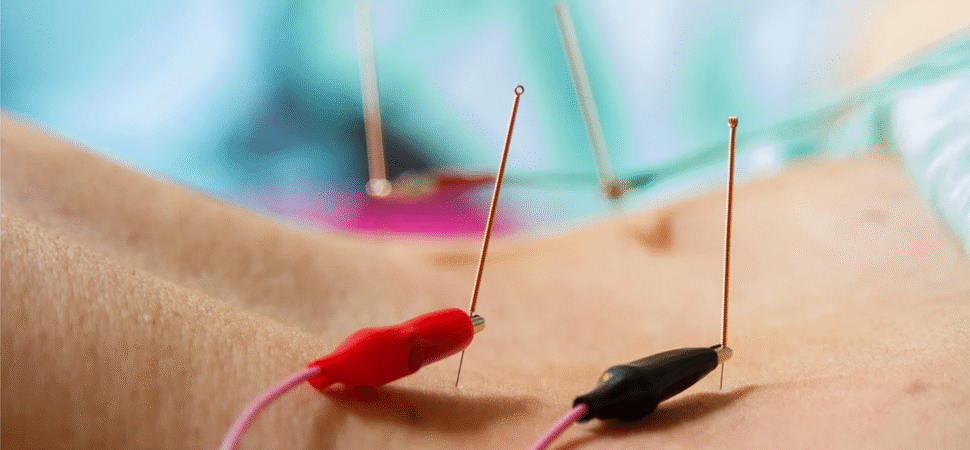If you’ve searched for relief from pain or tight muscles, you may have come across two seemingly similar therapies: dry needling and acupuncture. Both use thin, stainless-steel needles and both can reduce muscle tension, improve mobility, and decrease pain.
So… are they the same thing? Not quite.
Although dry needling and acupuncture may look similar at first glance, they differ in their training, philosophy, and clinical application. Understanding these differences can help you choose the best approach for your needs.
What Is Dry Needling?
Dry needling is a technique most commonly performed by physical therapists, chiropractors, and other musculoskeletal providers. It focuses on trigger points—tight knots or “hot spots” in the muscle that cause local or referred pain.
The term “dry” means that no fluid is injected—just the needle itself is used.
Dry needling is often used to:
- Release muscular tension
- Improve flexibility
- Decrease pain caused by myofascial trigger points
- Improve range of motion in sports rehab or injury recovery
Training Requirements:
Dry needling certification varies by state and the type of provider. In many cases, practitioners take a weekend course (20–50 hours) before offering this service.
What Is Acupuncture?
Acupuncture is a core part of Traditional Chinese Medicine (TCM) and has been practiced for over 2,000 years. It uses needles to stimulate specific points along meridians—channels that correspond to organ systems, circulation, emotional health, and energy flow (Qi).
Unlike dry needling, acupuncture doesn’t just treat isolated muscles—it treats the entire person, addressing the root causes of symptoms, not just the surface pain.
Acupuncture is commonly used to treat:
- Back, neck, and joint pain
- Hormonal imbalances and menstrual irregularities
- Anxiety, stress, and sleep disturbances
- Digestive disorders
- Fatigue and immune dysfunction
- Fertility and IVF support
Training Requirements:
Licensed acupuncturists complete 3–4 years of graduate-level education (over 2,000–3,000 hours), pass national board exams, and are licensed by the state. Many also have advanced training in herbal medicine, Chinese diagnostics, and internal medicine.
Key Differences at a Glance
| Dry Needling | Acupuncture | |
|---|---|---|
| Philosophy | Trigger point-based (muscles) | Holistic (body, mind, energy) |
| Training Required | 20–50 hours (typically) | 2,000+ hours, Master’s/Doctorate |
| Scope of Treatment | Local muscle issues | Systemic conditions & pain |
| Practitioners | PTs, DCs, some MDs | Licensed Acupuncturists (L.Ac.) |
| Approach | Mechanical release | Energetic + physiological balancing |
Which Is Right for You?
If you’re looking for short-term muscle release for a sports injury or tight muscle, dry needling might help.
But if you want to address chronic pain, stress, fatigue, digestion, or hormonal issues—or you’re simply looking for a more comprehensive, whole-body approach—acupuncture is the better choice.
Many patients find that acupuncture not only relieves their physical symptoms, but also improves their sleep, mood, energy, and emotional balance.
Why Choose Balance Acupuncture & Naturopathic?
At BalanceNDLAc, Dr. Meng Xiong is a licensed acupuncturist trained in both Western and Eastern medical perspectives. With advanced knowledge of pain, neurology, and internal conditions, he provides care that goes beyond temporary fixes—offering treatments that restore balance at the root.
Whether you’re dealing with back pain, fatigue, sciatica, or hormonal imbalances, Dr. Xiong will create a plan tailored to your whole system, not just one tight muscle.
Ready to Experience the Difference?
If you’ve tried dry needling and are still searching for deeper, longer-lasting relief, acupuncture may be the missing piece.
👉 Call for a Consultation Today
👉 Explore Our Services
References
- Dry needling vs. acupuncture: Benefits and uses, Medical News Today, 2024
- What’s the Difference Between Dry Needling and Acupuncture?, Cleveland Clinic, 2023
- Dry Needling vs Acupuncture: Benefits and Risks, Healthline, 2018
- Comparative Techniques of Acupuncture and Dry Needling, PMC, 2023
- Dry Needling: Side Effects, Benefits, and Risks, Verywell Health, 2019

Author: Dr. Meng Xiong, ND, LAc
Have questions? Email balancendlac@gmail.com
To schedule an appointment, call 704-664-1031.
